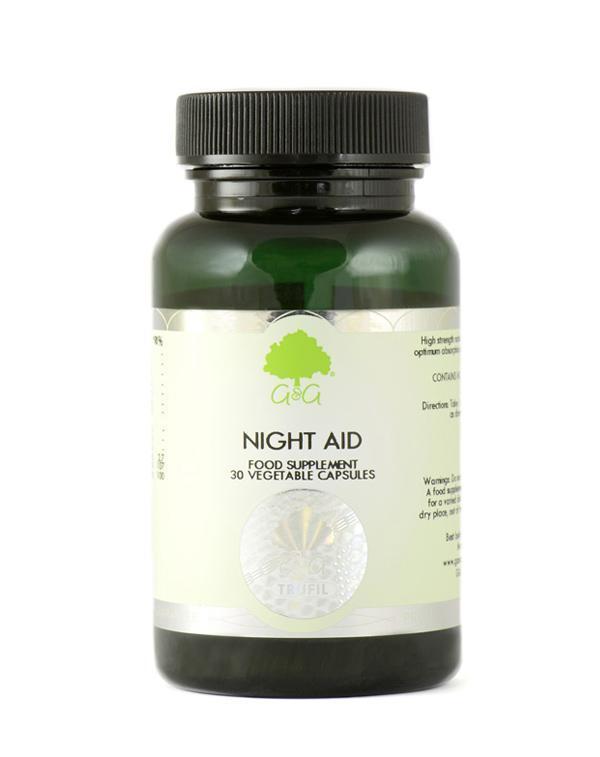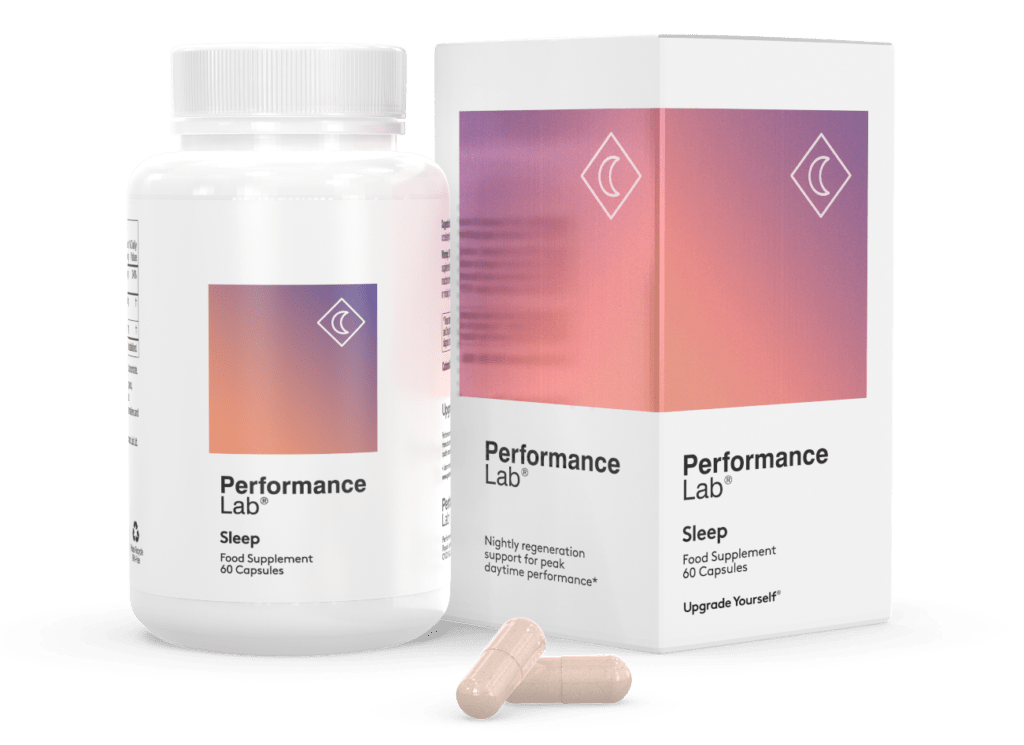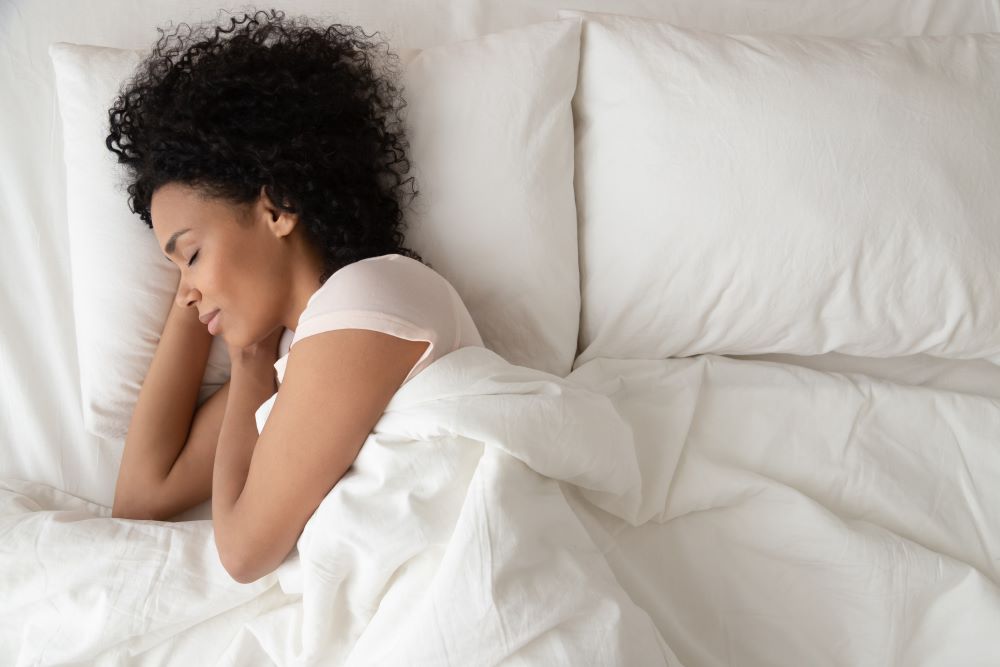If you don’t get enough sleep, there’s only one way to compensate – getting more sleep! The following tips can help to make a world of difference to your quality of sleep.
- A regular exercise regime
- Dietary supplements
- Aromatherapy
- Eating certain foods
- Get into a routine
- Create a relaxing environment for sleep
- The 4-7-8 breath relaxation exercise
Why is a good night’s sleep so important?
We know that sleep is vital to physical and mental health. On average, adults should optimally receive between seven and nine hours of sleep each night, but those needs vary individually.
A lack of sleep at night can make you cranky the next day. And over time, skimping on sleep can mess up more than just your morning mood. Here’s why you should give your body the ZZZs it needs:
- An ongoing lack of quality sleep can affect a person’s performance at work or school.
- It can seriously impair their ability to function day to day.
- It’s likely to impact on their quality of life and their health.
- The number of health conditions linked to poor or inadequate sleep is almost endless, with obesity, diabetes and heart disease topping the list.
What causes insomnia or poor-quality sleep?
There are numerous reasons why your night’s rest may be cut short:
Light sleep – In the early hours of the morning you natural drift into lighter sleep and become easier to wake. This is why you’re more likely to be disturbed between 3 am and 5 am.
Poor sleep hygiene – While the word “hygiene” conjures up images of hand-washing and teeth-brushing, sleep hygiene is different. It’s the habits that you can put in place each evening to optimise sleep.
Alcohol before bed – Having an alcoholic nightcap may make you fall asleep quickly, but often causes wake-ups later on in the night as your body metabolises the alcohol.
A less-than-ideal sleep environment—for example, a room that’s not dark enough, too noisy, or too warm—can result in fitful sleep too.
Too much caffeine – While it may be intuitive that drinking coffee for an afternoon pickup could interfere with your sleep later, caffeine is also present in other forms, like iced tea or chocolate. For some, caffeine can cause nervousness and agitation, also known as “the jitters.” For others, coffee can cause digestive distress and headaches.

7 Top tips for a better night’s sleep
Sleep is crucial for everyone to live their best life, and yet many of us aren’t doing it well. Stress, technology, environment and other factors can ruin a night of sleep, leaving you feeling exhausted when you wake up, even if you do manage to get that elusive 8 hours.
We’ve rounded up our seven best sleep tips right here to help you get a better night’s rest.
1. Start exercising regularly
Exercise at the right time, or do the right type of exercise. Getting active keeps our weight in check, but it can also help with sleep. The best types of exercise for sleep include cardio activities like running or cycling.
The downside is that exercising too close to bedtime ramps up metabolism and body temperature and can make it difficult to fall asleep. To prevent this, don’t plan a workout within three or four hours of bedtime. Or, change up the exercise you do to low impact activities, such as stretching or yoga.
2. Try dietary supplements
Dietary and herbal supplements can be an excellent way to ensure you’re body has everything it needs for sleep. They can boost the essential vitamins and minerals in your diet and even provide additional, herbal, sleep-promoting benefits. However, as with any supplement, if you’re on any existing medication, talk to your doctor before adding anything new to your routine.


We recommend Night Aid from G & G Vitamins which can be found at fortheageless.com. Each capsule contains reishi mushroom alongside eleven vitamins and herbs, precisely selected to support sleep.

Another great option is Performance Lab’s sleep supplement. It’s a great source of natural melatonin (from tart cherries) alongside magnesium and L-tryptophan. Get the latest price and full details.
Related reading: Performance Lab’s Sleep Supplement Review
Recent studies have also shown that CBD oil is linked to reduced anxiety and better quality sleep. For the Ageless also stock a range of high-quality CBD oils which are easy to take throughout the day or just before bed.
3. Relax with aromatherapy
Many essential oils have calming, sleep-promoting benefits. Essential oils like lavender and bergamot are rich in linalool and linalyl acetate; both compounds have well-known relaxing properties. These oils can be diffused aromatically in the bedroom to create a peaceful environment before bed. They can also be taken internally to calm the nervous system, promote relaxation, and lead to a restful sleep.
For our recommendations of the best essential oils visit: 12 Must Have Essential Oils and How to Use Them. You may also like to see our selection of excellent oil diffusers.
4. Try eating these foods
Avoid high-carbohydrate foods which flood the muscles with glucose, causing involuntary muscle movements during sleep and disruption. When you get the nighttime munchies, it often means that your body is tired, so it may just be time to head for bed. Otherwise, try snacking on nuts.
Nuts provide protein and fat, which are not only satisfying but are slowly digested, which can provide a calm sleep. They are also rich in magnesium, a mineral that helps to calm the nervous system.

Or, if you prefer something to drink, try golden milk. It’s a rich, caffeine-free beverage that incorporates invigorating spices such as ginger, cinnamon, turmeric and black pepper. Other common additions include cardamom, vanilla and honey.
Besides giving your drink a beautiful golden colour, turmeric has numerous benefits and is antioxidant and anti-inflammatory. Find out more by visiting: Best Turmeric Supplements UK.
5. Get into a routine
Routine is the mother of good sleep. Part of building a healthy sleep schedule is to understand your circadian rhythm. In other words, your natural sleep-wake cycle?
Are you an early bird or a night owl? Try different sleep-wake times until you find what works for you. Then, try to maintain a regular sleep routine, going to bed at the same time and waking up at the same time. Creating this rhythm helps regulate your body’s internal clock and may help you sleep better.
6. Create a relaxing environment for sleep
Remove all electronics from the bedroom, including televisions, computers, and other electronic devices. Try to avoid bright light at least an hour before going to bed. Darkness will help your body begin producing melatonin, a hormone that naturally regulates sleep.
Make sure your bedroom is a quiet, dark, and relaxing environment, which is neither too hot, nor too cold. According to the Sleep Council, the ideal temperature is between 16˚C and 18˚C.

Your bed and pillows should be supportive, yet comfortable. Your body needs time to shift into sleep mode, so spend the last hour before bed doing a calming activity such as reading or taking a warm bath. These audio meditations may also help.
7. Practice the 4 -7- 8 breath relaxation exercise
This is a very simple and useful tool to achieve general relaxation and to manage stress.
Why should I do it? This exercise is a natural tranquiliser for the nervous system. Unlike tranquilising drugs, which are often effective when you first take them but then lose their power over time, this exercise is subtle when you first try it but gains in power with repetition and practice.
Use this to help you fall asleep:
- Exhale completely through your mouth, making a whoosh sound.
- Close your mouth and inhale quietly through your nose to a mental count of 4.
- Hold your breath for a count of 7.
- Exhale completely through your mouth, making a whoosh sound to a count of 8.
- This is one complete breath. Now inhale again and repeat it three more times for a total of four. As you get more experienced you can build it up to eight full breaths.
Conclusion
If you try the above 7 top tips and still struggle to improve the quality of your sleep, try keeping a sleep diary. Use it to keep a brief record of what you eat, when you sleep and the quality of your sleep. This will help you to identify any specific problems that may be stopping you from sleeping.
Start keeping the diary as soon as you begin to recognise a problem and complete over two weeks. If the problem persists, make an appointment with your GP or healthcare professional and take the diary with you. It will provide you with evidence of your sleep-wake pattern, and may help with diagnosis and treatment.
My Supplement Recommendations
These are products that I currently use and enthusiastically recommend:
Multivitamin – Nutrigenesis Multi for Men or Nutrigenesis for Women. Performance Lab use their patented Nutrigenesis technique to provide a range of vitamins and minerals in their most effective form. Read my review.
Nootropic – Mind Lab Pro contains eleven natural nootropics that have been proven to support cognitive function and brain health. Read my review.
Collagen – Edible Health Bovine Collagen. This excellent bovine collagen powder is completely tasteless and absorbs quickly into any liquid. It’s third-party lab tested and provides 13g of collagen per serving. Read my review.
Turmeric – VitaBright Organic Turmeric with Ginger and Black Pepper. These turmeric capsules are organic, effective and affordable. They include black pepper to enhance curcumin absorption and ginger to provide additional useful benefits. Read my review.
Incredible value – G&G Vitamin 28 day packs This is the most affordable way to buy supplements in the UK. One tub holds 28 daily packs of up to 11 different vitamins, minerals or food supplements.

